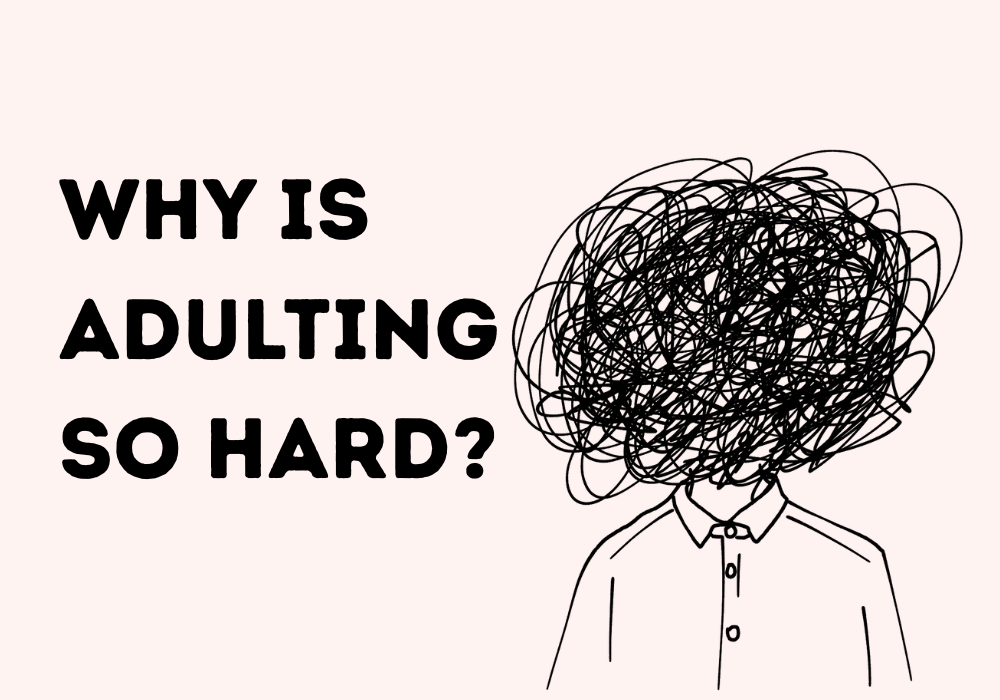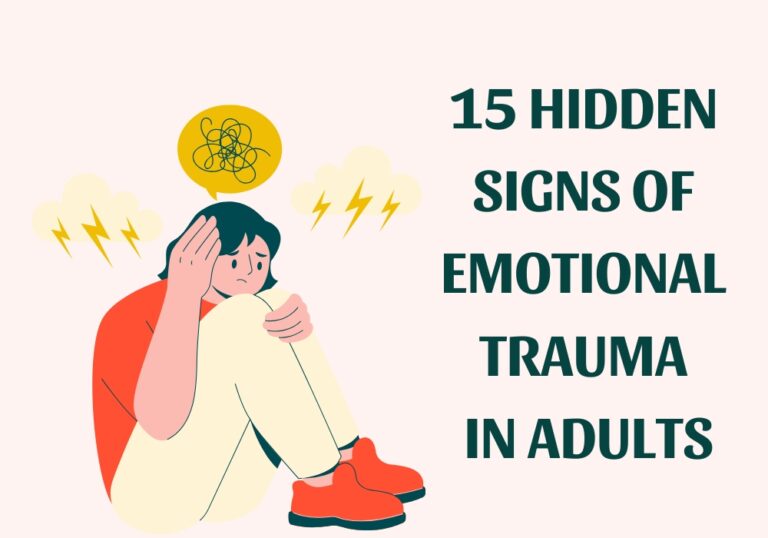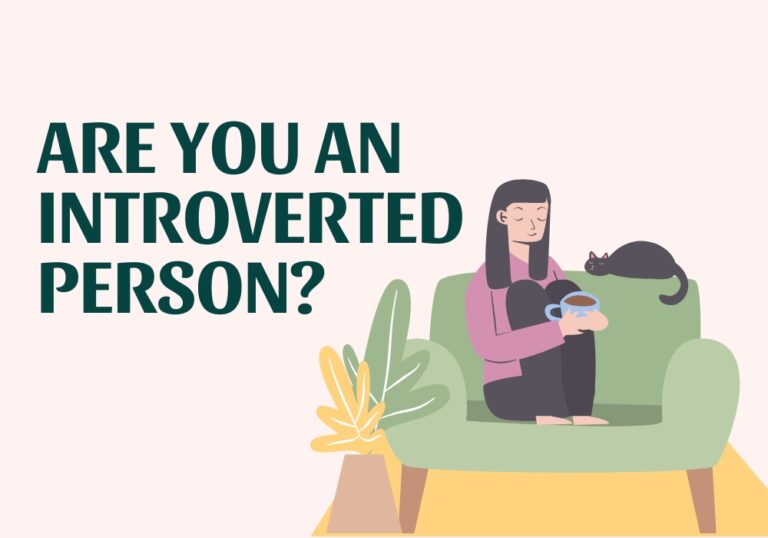Why Is Adulting So Hard?
Let’s be honest — no one really prepared us for how complicated adulthood would be. One minute you’re celebrating your independence, and the next you’re drowning in bills, unanswered emails, and an overflowing laundry basket that silently judges you from across the room. Somewhere between childhood dreams and real-life responsibilities, things got messy.
If you’ve ever found yourself late at night Googling “why is adulting so hard” (or asking yourself why being an adult feels so exhausting), you’re definitely not alone. In fact, Google searches for this phrase have skyrocketed by more than 300% in the past few years, proving that millions of people are quietly wondering the same thing.
The truth? Adulting really is harder today. Between the rising cost of living, mental burnout, job instability, and social media pressure to “have it all together,” modern adulthood has become a full-time emotional workout. Add to that the fact that our brains don’t fully develop until around age 25 — especially the part that handles planning and decision-making — and it suddenly makes sense why so many of us feel like we’re winging it.
But here’s the comforting part: struggling with adulthood doesn’t mean you’re failing — it means you’re human. Everyone’s trying to balance independence, responsibilities, and self-care in a world that never slows down.
Stick around, We’re going to dive deep into the neuroscience, economics, psychology, and social factors that make modern adulthood so challenging—then give you practical tips that actually work.(without losing your sanity).
The Science Behind Why Adulting Feels So Hard:
1-Your Brain Isn’t Fully Adult Until Age 25:
Here’s something they didn’t mention at your high school graduation: When you received your diploma at 18, your brain was only about 80% finished developing. The part responsible for “adulting”—the prefrontal cortex—doesn’t fully mature until around age 25 or 26.
The prefrontal cortex is your brain’s CEO. It handles:
- Decision-making and judgment
- Impulse control
- Planning and organization
- Risk assessment
- Emotional regulation
- Working memory
Think about that. Society hands you adult responsibilities—college decisions, student loans, career choices, financial independence—at exactly the age when your brain’s executive function center is still under construction. It’s like being told to bake a five-tier wedding cake… with only half the recipe and even with no oven mitts.
Remember, You’re not lazy. You’re not incompetent. Your brain literally doesn’t have all its tools yet.
2-The Neuroscience of Decision Fatigue:
Every single day, the average adult makes approximately 35,000 decisions. From the moment you wake up (hit snooze or get up? What to wear? Coffee or tea? Check email now or later?) to the moment you finally fall asleep (one more episode or go to bed? Set an alarm for 6 or 6:30?), your brain is in constant decision-making mode.
Each decision—no matter how small—depletes your mental energy. This phenomenon is called decision fatigue, and it’s one of the primary reasons adulting feel so exhausted.
Here’s what happens in your brain:
1. Your brain runs on fuel:
Every decision you make burns glucose — your brain’s main energy source. As the day goes on, that fuel runs low, and decision-making gets harder. That’s why your morning self plans salads and workouts, but your 7 PM self says, “Pizza sounds perfect.”
Related: Decidophobia: Causes, Symptoms, and 16 Ways to Overcome It
2. Your motivation system glitches:
Dopamine, the brain’s “motivation molecule,” helps you act on decisions. But with constant dopamine spikes from social media and notifications, your brain’s reward system gets off balance. So adulting tasks like budgeting or scheduling appointments feel… painfully boring.
3. Your mental RAM overloads:
Your working memory can only hold so much at once. When you’re juggling bills, deadlines, texts, and dinner plans, your brain crashes like an overloaded laptop. That’s why things slip through the cracks.
4. Stress takes the wheel:
As mental fatigue sets in, your amygdala (the fear center) goes into overdrive while your logical brain powers down. You get more emotional and less focused — exactly when you need clarity most.
No wonder by evening, choosing dinner feels like a life-or-death mission. Your brain isn’t being lazy — it’s literally depleted.
5-The Sleep Deprivation Crisis:
Here’s the harsh truth: most adults are running on empty. Stress from daily responsibilities makes it harder to sleep, and poor sleep makes adulting feel ten times harder—a vicious cycle that never ends.
Our natural sleep rhythm wants late nights and slow mornings, but the adult world demands early alarms and endless productivity. Add in blue light from screens and the anxiety of tomorrow’s to-do list, and your brain barely stands a chance.
The CDC reports that 1 in 3 adults doesn’t get enough sleep, and when you’re already juggling responsibilities, decision fatigue, and constant stress, it’s like trying to run a marathon with a sprained ankle.
This is a huge part of why adulting is so hard. Your brain is exhausted, overstimulated by screens, and forced to function on a schedule it was never designed for. Sleep isn’t a luxury you can skip—it’s the foundation keeping everything else working.
You’re not lazy or unmotivated. You’re just exhausted in a world that forgot how to rest.
Related: Sleep Deprivation: Symptoms, Causes, & 10 Effects
The Psychological Burden of Modern Adulthood
1-The Never-Ending To-Do List:
Adult life operates like a video game with infinite levels—except there’s no pause button, no save points, and the levels just keep getting added.
Pay bills.Respond to emails. Grocery shopping. Meal prep. Clean the bathroom. Do laundry. Network for career advancement. Exercise. Maintain friendships. Call your parents. File taxes. Remember birthdays. Deep clean refrigerator. Update passwords. Cancel subscriptions you forgot about…Etc
And that’s just the visible tasks.
Beyond the actual tasks is the cognitive labor of remembering, planning, and coordinating everything. Psychologists call this the “mental load,” and research shows it’s a significant source of stress and burnout, particularly for women who often bear a disproportionate share.
The mental load includes:
- Remembering what needs to be done
- Anticipating future needs
- Planning and strategizing
- Delegating and coordinating
- Worrying about what might fall through the cracks
You’re essentially running a complex project management operation inside your head 24/7. And unlike a job, you can’t clock out from life management.
The issue isn’t organization—it’s that the volume of adult responsibilities genuinely exceeds what one person can comfortably manage while also working full-time and maintaining their mental health.
Related: Digital & Prinatable Planners
2-Paralyzed by Endless Choices:
Another reason why adulting is so hard is decision overload.
As Psychologist Barry Schwartz calls it The Paradox of Choice—too many options make us anxious instead of free.
If you wonder why being an adult is so hard, look at the overwhelming number of choices we face. Unlike previous generations, we have thousands of career paths and are pressured to find a “passion,” not just a paycheck. That just adds more pressure and turns every decision into a weighty question of identity.
The same goes for relationships and lifestyle. Should you get married or stay single? Rent or buy? Live in the city or countryside? Go vegan or try keto? Every decision feels monumental—and every option comes with FOMO.
The result? Decision fatigue. You spend so much mental energy choosing that you end up exhausted before you’ve even acted.
3-Imposter Syndrome and Identity Crisis:
If you feel like you’re just pretending to be an adult and everyone around you has actually figured it out, congratulations—you’re experiencing one of the most universal aspects of modern adulthood.
1-Imposter syndrome:
The persistent feeling that you’re a fraud, that you don’t deserve your achievements, and that you’ll eventually be “found out” as incompetent. Research published in the International Journal of Behavioral Science found that up to 70% of people experience imposter syndrome.
Why it’s worse for young adults today:
- Social media exposes you to thousands of people appearing more successful
- Traditional markers of adulthood (homeownership, marriage) are delayed due to economic constraints
- You’re expected to maintain different personas: professional self, social media self, dating app self, family self
Related: Imposter Syndrome Symptoms & 10 Tips to Overcome It
Related: 15 Hidden Signs of Emotional Trauma in Adults & How to Heal
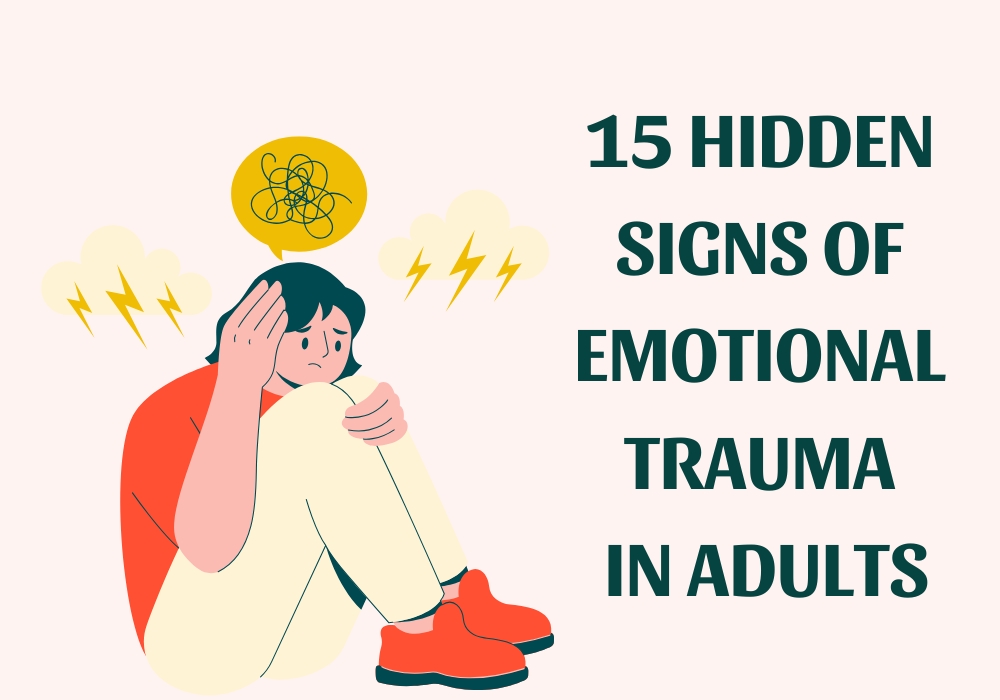
2-The quarter-life crisis:
Between ages 25-35, many people experience what researchers call a “quarter-life crisis”—a period of intense anxiety, uncertainty, and identity questioning. You thought you’d “feel like an adult” by now, but instead you feel like a confused kid with bills to pay.
Questions that plague the quarter-life crisis:
- Who am I beyond my job title?
- What do I actually want, vs. what I’ve been told to want?
- Is this all there is?
- Did I make the wrong choices?
- Why does everyone else seem to have it figured out?
3-The Social Media Effect on Adulting:
No discussion about why adulting is so hard is complete without examining social media’s profound impact on how we experience adult life.
Highlight Reel Syndrome and Comparison Culture:
Social media presents a curated, filtered, edited version of life. You see:
- Your friend’s promotion announcement (not the rejection emails before it)
- The influencer’s beautiful home (not the mortgage stress)
- Your acquaintance’s exotic vacation (not the credit card debt funding it)
- The engagement posts (not the relationship struggles)
- The success stories (not the failures)
This creates what’s called algorithmic amplification. Social media algorithms prioritize engagement, which means extreme content rises to the top. You’re not seeing average reality—you’re seeing the exceptional presented as normal.
This warps your expectations: suddenly a “normal” apartment should look magazine-perfect, a “normal” body needs to match fitness influencers, and a “normal” career requires rapid advancement and passion. A “normal” social life requires constant events and perfect friends.
None of this is actually normal. But when it’s all you see, it feels like everyone else achieved it except you.
A study in the Journal of Social and Clinical Psychology found a causal link between social media use and decreased well-being, particularly increased depression and loneliness. The mechanism? Upward social comparison—constantly comparing yourself to people who appear to be doing better.
And all that resulting to ” the adulting impact”:
When everyone on Instagram appears to be thriving—traveling, buying homes, getting engaged, landing dream jobs, looking perfect—and you’re struggling with basic tasks, it creates a distorted belief that you’re uniquely failing at adulthood. This is another major reason why being an adult is so hard today.
The truth? They’re struggling too. They just don’t post about it.
Related: Smiling Depression: The Hidden Pain Behind a Happy Face
Related: Can Work Cause Depression ?
Related: Feeling Blue? Here’s What You Can Do to Feel Better
Relationships, Social Life and Loneliness in Modern Adulthood:
Relationships are supposed to make adulthood easier—but often, they’re what make it harder.
1-Family Expectations:
As we get older, family roles start to flip. The parents who once cared for you may now need your support—emotionally, financially, or physically. If you’re part of the “sandwich generation,” you know the struggle of balancing care for both aging parents and growing kids while still trying to manage your own life.
And it doesn’t stop there. Family expectations can stretch you thin—attending every gathering, staying in touch with relatives, or living up to cultural traditions that no longer fit your lifestyle. It’s love, yes, but it’s also a lot of emotional labor.
Related: Are You in A Toxic Family? 8 Signs & How to Cope
Related: 21 signs of Manipulative parents
2-Adult Friendships & Dating:
Making friends as an adult feels almost like a social experiment. You can’t just walk up to someone at a cafe and say, “Wanna hang out?” Friendships now require calendars, effort, and a shared sense of patience. You text, send memes, and sometimes accept that meeting twice a year is success.
Dating isn’t easier either. Between busy schedules and emotional baggage, finding real connection can feel like another full-time job. And the pressure to “find your person” while also building a stable career? That’s the kind of emotional multitasking that makes you question if balance even exists.
Related: 9 Types of Friendships You’ll Encounter in Life
Related: How To Avoid Fake Friends? 11 Warning Signs
3-Community & Belonging:
Here’s one reason why adulting is so hard that rarely gets talked about—we’ve lost community. The neighborhoods where everyone knew your name, the weekly gatherings, the familiar faces… they’ve quietly disappeared.
But belonging still matters. Humans aren’t wired to do life alone. Joining hobby groups, volunteering, or even connecting online can rebuild a sense of community—one small step at a time.
Because adulthood isn’t meant to be mastered alone—it’s meant to be shared.
The sandwich generation refers to adults who are simultaneously caring for aging parents while raising or planning for their own children. But increasingly, young adults without children are still feeling this squeeze.
Financial & Career Pressures:
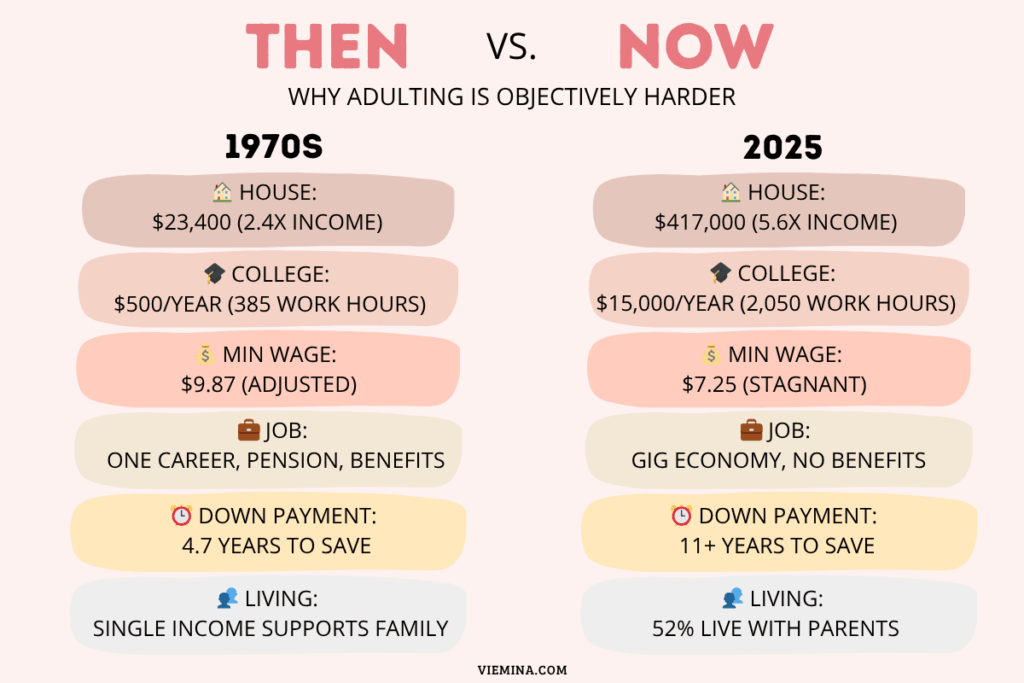
1-Rising Cost of Living:
Let’s talk about the elephant in the room: money. Or rather, the lack of it. Modern costs have skyrocketed while wages have stagnated. Rent consumes half your paycheck. Student loan debt feels like a life sentence. Healthcare costs are terrifying. Groceries somehow cost $200 even though you only bought “a few things.”
Surveys show that 67% of young adults feel consumed by money worries. It’s not just stress—it’s a constant background hum of financial anxiety that colors every decision. Can you afford to fix your car? Should you go to that wedding? Is buying name-brand coffee creamer an irresponsible luxury? When basic survival feels expensive, adulting feels impossible.
->Start organizing your income, expenses, and savings goals today with the Ultimate Budget Planner — a simple, printable tool designed to help you feel more in control of your money (and your peace of mind).
2-Perfectionism and Hustle Culture Toxicity:
Gone are the days of one stable job with a pension—welcome to the gig economy, where you’re expected to juggle a side hustle, network constantly, and optimize your productivity like it’s a moral virtue. This is a huge reason why adulting is hard: “hustle culture” has convinced us that grinding 24/7 is success, while rest equals laziness. Not building a side business after your 9-to-5? Lazy. Taking a mental health day? Feels like failure. Not responding to emails instantly? Unprofessional.
The consequence? The World Health Organization now recognizes burnout as an official diagnosis because people are literally pushing until they break. Here’s the cruel irony: this obsession with constant productivity actually impairs the creativity, cognitive function, and decision-making you need to succeed. Job security is a myth, benefits are negotiable, and you’re supposed to be grateful for working yourself to the bone.
This toxic expectation that you should always be “on” is why being an adult feels so impossibly hard—you’re not failing, the system itself is broken.
Related: How To Overcome Perfectionism in 10 Tips
Related: How to Avoid Burnout: 15 Effective Ways to Restore Balance
Practical Strategies That Actually Work: (Your Adulting Survival Guide)
1. The “Future You” Method:
Why it works: Present You is tired. Future You will also be tired. Make things easy for both of you.
How to help Future You:
- Lay out tomorrow’s clothes tonight
- Pack your lunch while cooking dinner
- Put gym clothes by your bed (so you trip over them)
- Keep a “grab and go” bag by the door (keys, wallet, essentials)
- Prep coffee the night before (just press start in the morning)
The mindset shift: Every small action Present You takes is a gift to Future You. Future You always says thank you.
2-Batch Your Tasks Like a Boss:
Why it works: Task-switching drains brain power. Doing similar things together creates flow.
What to batch:
- Meal prep Sundays: Cook 3-4 meals at once, portion them out, done for the week
- Admin Mondays: Pay bills, answer emails, schedule appointments—all at once
- Errand Saturdays: Bank, grocery store, post office, pharmacy in one trip
- Laundry day: Wash everything in one day instead of spreading it out
Pro tip: Put it on your calendar like a real appointment. “Tuesday 7 PM: Admin hour” is non-negotiable.
3-The Two-Minute Rule (It’s Magic):
Small tasks pile up mentally more than physically. Just do them.
The rule: If something takes less than 2 minutes, do it immediately instead of adding it to your mental to-do list.
Examples:
- Hang up your coat when you come home
- Rinse your dish right after using it
- Reply to that simple text
- Put your keys in the designated spot
- Wipe down the bathroom counter
- Schedule that appointment
Why it’s genius: The mental burden of remembering these tiny tasks is actually more exhausting than just doing them. Stop carrying them in your brain.
4-Tools & Routines:
Some Practical systems make adulting manageable:
Budgeting apps like Mint or YNAB track spending automatically. Meal planning services reduce decision fatigue around food. Shared calendars help coordinate schedules with partners or roommates. Automatic bill pay prevents late fees. Chore charts distribute household labor fairly. Grocery delivery saves time and mental energy.
Find the tools that work for your brain and circumstances. If traditional planners don’t work, try digital apps. If apps overwhelm you, use a simple notebook. The best system is the one you’ll actually use.
(I actually design printable digital planners made exactly for this—simple, flexible, and stress-free. You can explore them in my store if you want a head start.)
5-Energy Management > Time Management
You don’t have the same energy all day. So,work with your natural rhythms, not fight against it.
How to use your energy wisely:
- Morning peak energy: Hard tasks (work projects, difficult conversations, financial planning)
- Afternoon slump: Easy tasks (emails, organizing, light chores)
- Evening wind-down: Minimal effort (folding laundry while watching TV, meal prep)
- Track yourself for one week: When do you feel most alert? Most creative? Most drained? Then schedule accordingly.
Permission granted: Rest is productive. Your brain needs recovery time.
Related: Productive Morning Routine: 13 Tips to Start Your Day Right
Related: How To Create a Productive Evening Routine: 12 Easy Steps
6-The Decision-Making Shortcut:
Why it works: Most decisions aren’t as important as they feel. Stop overthinking.
Quick decision frameworks:
- For small decisions (what to eat, what to wear): Give yourself 30 seconds, then pick. No overthinking allowed.
- For medium decisions (taking a job, moving): The 10-10-10 rule—How will I feel about this in 10 days? 10 months? 10 years?
- For big decisions (marriage, kids, career change): Sleep on it for 3 days. If you still feel the same, trust your gut.
- When options feel equal: Flip a coin. Pay attention to your emotional reaction when it lands. Disappointed? Choose the other option. Relieved? Go with the coin.
The truth: Most decisions are more reversible than you think. And indecision is often worse than the “wrong” decision.
7-The “Systems Audit” Quarterly Check-In:
Why it works: Life changes. Your systems should too.
Every 3 months, ask yourself:
- What’s working well? (Keep doing this!)
- What’s consistently not getting done? (Your system is broken, not you—fix the system)
- What’s draining my energy? (Eliminate or delegate if possible)
- What would make life 10% easier? (Implement one small improvement)
Example changes:
- Switch grocery delivery services if yours sucks
- Cancel subscriptions you don’t use
- Adjust budget categories based on actual spending
- Change workout time if mornings aren’t working
The principle: Adulting systems should serve you, not enslave you.
8-The “Just for Today” Approach:
Why it works: Looking at everything forever is overwhelming. Just focus on today.
When you’re overwhelmed:
- Not “I have to eat healthy forever” → “I’ll eat one vegetable today”
- Not “I need to save $10,000” → “I’ll transfer $20 to savings today”
- Not “I have to exercise regularly” → “I’ll walk for 10 minutes today”
- Not “I need to fix my whole life” → “I’ll do one load of laundry today”
The magic: Small daily actions compound. You don’t need to solve everything at once.
Permission granted: Today is enough. Tomorrow is another today.
9-Let Go of “Shoulds”!
These “shoulds” often come from outdated timelines and social media highlight reels:
- I should own a home by 30
- I should be married
- I should have it all figured out
- I should be further along in my career
Ask yourself: Says who?
Create your own metrics:
- What actually matters to me?
- What kind of life do I want to live?
- What are my authentic values?
- What would make me feel fulfilled?
Your answers might be unconventional—and that’s valid if they’re YOUR choices.
10-Self-Care and Boundaries:
Self-care isn’t bubble baths and face masks (though those are nice). Real self-care is setting boundaries, getting adequate sleep, eating regularly, taking breaks, and saying no to obligations that drain you. It’s scheduling downtime like you schedule meetings, because rest is productive—it prevents burnout.
Related ⬇
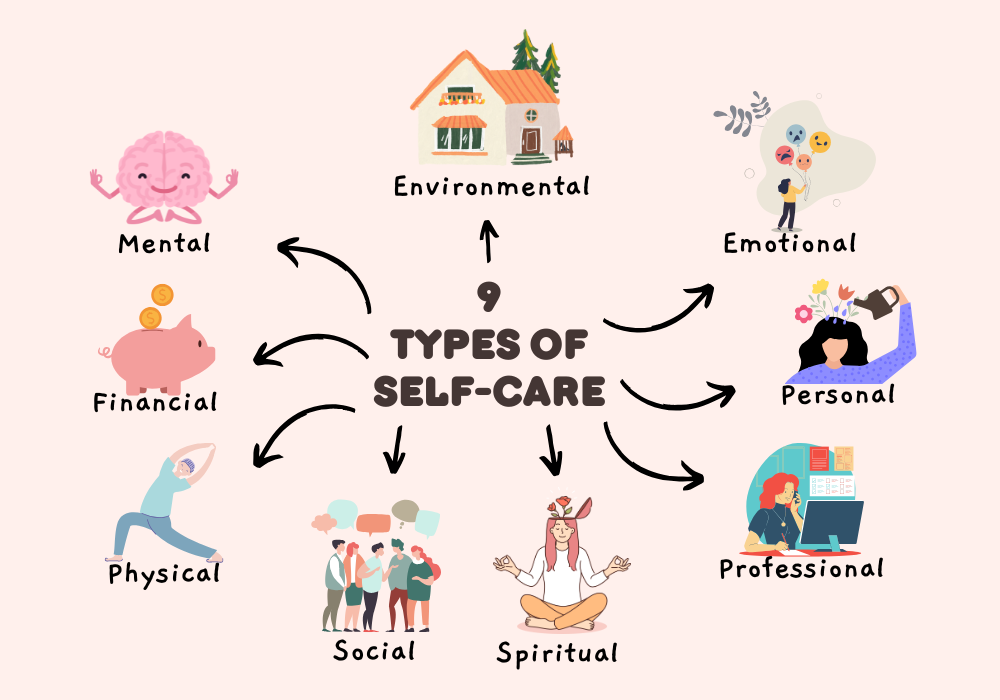
Conclusion:
If adulting feels like a class no one prepared you for, you’re not alone. Every person you admire is figuring it out too—one mistake, one bill, one growth spurt at a time.
Remember these truths:
- Your brain wasn’t fully developed when adult responsibilities began.
- Economic conditions are measurably harder than previous generations.
- The volume of decisions and tasks genuinely exceeds comfortable management.
Skills you need weren’t taught in school:
- “Good enough” is genuinely enough.
- Progress matters more than perfection.
Adulthood isn’t a destination—it’s a journey of becoming. And you’re already doing better than you think.
Frequently Asked Questions: Why Is Adulting So Hard?
1. At what age does adulting become easier?
Most people find adulting easier around age 28-32. Your brain’s prefrontal cortex (responsible for decision-making and planning) fully matures at 25-26, and by your late 20s, you’ve built enough experience to develop effective systems and routines.
2.Is it normal to feel like you’re failing at adulting?
Absolutely normal. In fact, it’s nearly universal. Social media and cultural pressures create the illusion that everyone else has it figured out, but behind closed doors, most adults are struggling with something—whether it’s finances, relationships, career uncertainty, or just keeping up with laundry. The feeling of failing often comes from comparing your behind-the-scenes reality to everyone else’s highlight reel.
3.Is adulting harder for people with ADHD or anxiety?
Yes, significantly. People with ADHD struggle with executive function—the mental processes that help with planning, organization, time management, and task initiation. Tasks that neurotypical people find routine (paying bills on time, keeping track of appointments, maintaining household organization) can be genuinely difficult for people with ADHD, not due to laziness but due to how their brain processes information and manages attention. Similarly, anxiety can make every decision feel high-stakes and paralyzing, turning simple tasks into sources of dread.
4.How much money do I need to feel like a “real” adult?
There’s no magic number that suddenly makes you feel like a legitimate adult. Financial security looks different for everyone depending on where you live, your circumstances, and your goals.
5.Is it normal to struggle with adulting?
Absolutely. Studies show that over 70% of adults feel unprepared for adult responsibilities. Many were never taught essential life skills like budgeting, time management, or emotional regulation. Struggling doesn’t mean you’re behind—it means you’re learning in real time.
6.How can I make adulting easier?
Start with small systems. Automate bill payments, use digital planners, and celebrate small wins. Building simple routines—like meal prepping, budgeting, and regular rest—reduces chaos and mental load. Consistency beats perfection.
7. Does therapy actually help with adulting stress?
Yes. Therapy helps you understand emotional patterns, set boundaries, and manage burnout. Research from the APA shows that talk therapy significantly reduces chronic stress and improves decision-making and motivation.
8. Why did previous generations seem to handle adulthood better?
They didn’t necessarily “handle it better”—they faced different circumstances. Past generations had lower living costs, stable job markets, and clearer social milestones. Today’s world is faster, more expensive, and digitally demanding, which makes adulting feel harder than before.

